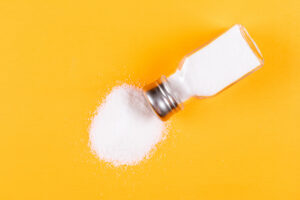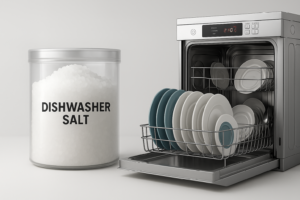Dishwashing with a dishwasher relies on three essential components: detergent, salt, and rinse aid. With the rise of all-in-one dishwasher tablets that combine these elements, many wonder if additional dishwasher salt is still necessary. The answer is yes—you still need dishwasher salt, even when using all-in-one tablets. However, the amount required depends on your water hardness level. In this article, we’ll explain why dishwasher salt remains important and how to use it correctly based on your water hardness.
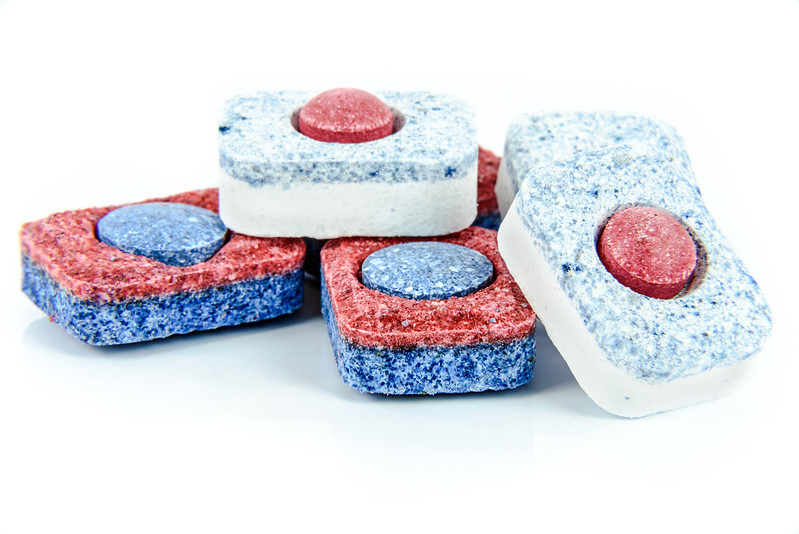
Do All-in-One Dishwasher Tablets Provide Enough Salt?
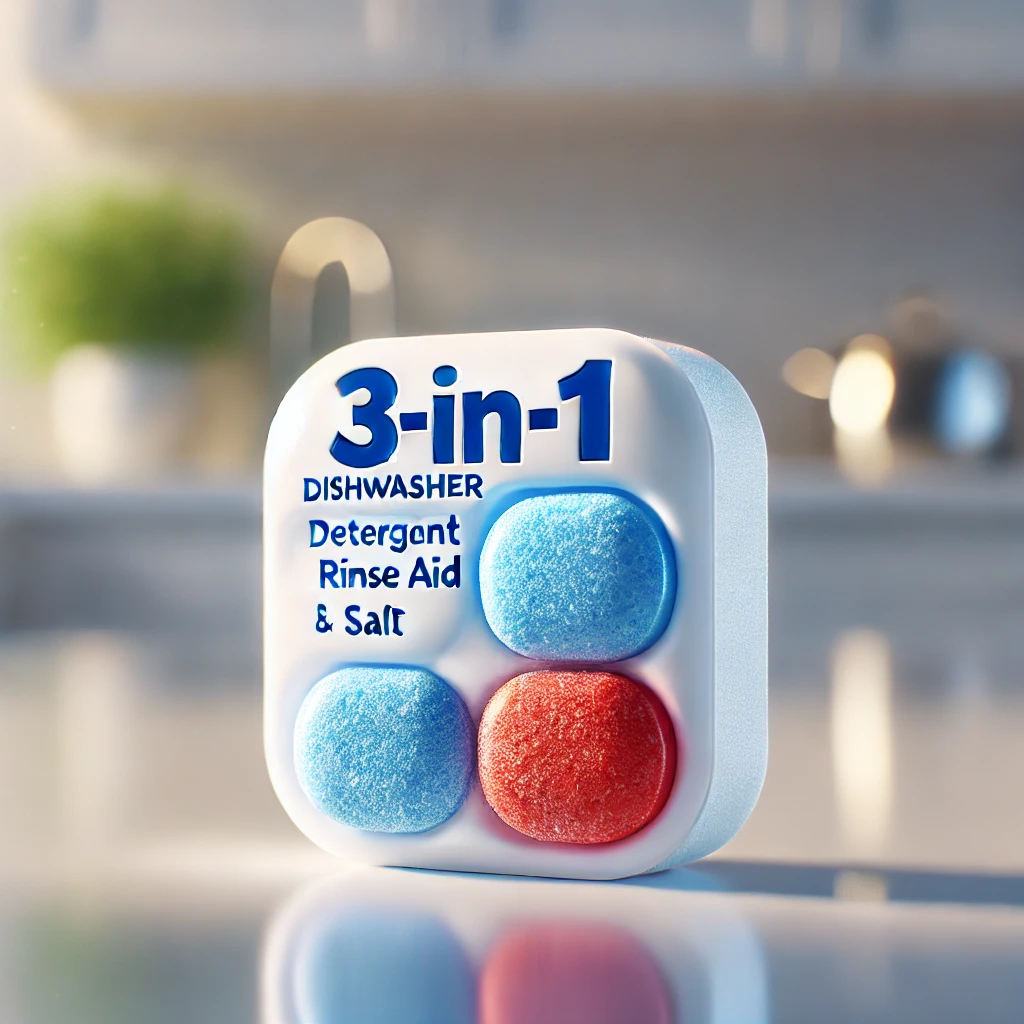
All-in-one dishwasher tablets are designed to simplify dishwashing by combining three essential components:
- Detergent – Breaks down grease, food residues, and stains.
- Rinse Aid – Helps water slide off dishes, preventing streaks and water spots.
- Salt (Water Softener) – Reduces limescale buildup by softening hard water.
Since these tablets contain all three elements, many assume that additional dishwasher salt is unnecessary. However, the salt content in all-in-one tablets is minimal and often insufficient—especially in areas with hard water. Without enough salt, limescale buildup can occur, reducing cleaning efficiency and affecting dishwasher performance. This is why many dishwashers still require separate salt to ensure optimal water softening.
How to Determine How Much Dishwasher Salt is Needed?
Step 1: Find Your Water Hardness Level
To determine if extra dishwasher salt is required when using all-in-one tablets, you first need to check your water hardness.
There are two ways to do this:
- Contact Your Water Supplier – They can provide details about the water hardness in your area.
- Use a Water Hardness Test Strip at Home – This is a simple and quick method.
How to Use a Water Hardness Test Strip:
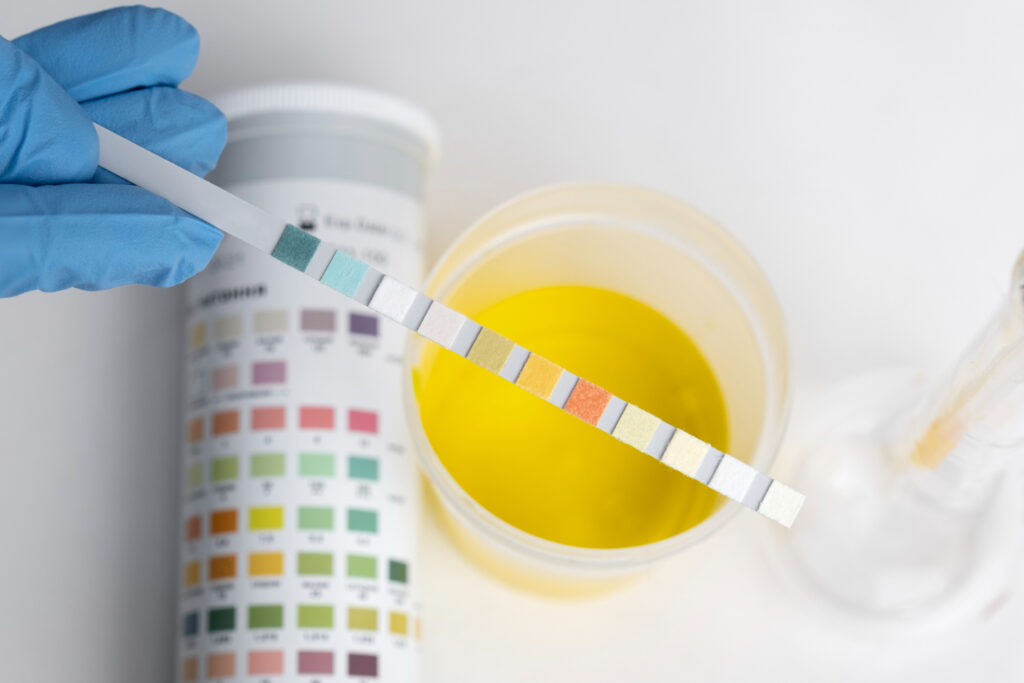
- Buy a water hardness test strip from a local store or online.
- Fill a small container with the same water used in your dishwasher.
- Dip the test strip into the water, and after dipping, hold it for a few seconds.
- Do not shake the strip—wait for the color change to occur.
- Compare the color of the strip with the color chart provided in the test kit.
Water Hardness Levels & Interpretation
| WATER HARDNESS LEVEL | COLOUR CHANGE | MINERAL CONTENT |
|---|---|---|
| Soft Water | Low colour change | Low mineral content |
| Moderately Hard Water | Moderate colour change | Moderate mineral level |
| Hard Water | High colour change | High concentration of minerals |
Once you determine your water hardness level, the next step is to adjust your dishwasher settings accordingly.
Step 2: Adjust Your Dishwasher Settings
The rule is simple: The harder the water, the higher the dishwasher setting should be, and the more frequently you need to refill the salt.
Most dishwashers allow you to adjust water softening settings through:
- The control panel on the dishwasher.
- A mobile app (if your dishwasher supports smart features).
Refer to your user manual for exact instructions on adjusting salt settings.
Once you’ve set it up, your dishwasher will automatically indicate when a salt refill is needed. Simply add salt to the dishwasher’s salt dispenser, and you’re good to go!
How Often Should You Refill Dishwasher Salt?
The frequency of refilling dishwasher salt and the amount needed depend on the hardness level of your water.
- Hard Water: If your water is hard, you’ll still need to use dishwasher salt along with all-in-one tablets, and refilling may be required every 1-2 weeks due to higher mineral content.
- Moderately Soft or Slightly Hard Water: In areas with moderately soft or slightly hard water, the salt in all-in-one tablets may provide some water softening, so you won’t need to refill the salt dispenser as frequently. However, depending on the exact hardness level and dishwasher model, occasional refilling may still be necessary to prevent limescale buildup.
- Soft Water: Even in areas with soft water, it’s still advisable to add dishwasher salt to your machine. While soft water contains fewer minerals than hard water, trace amounts of calcium and magnesium may still lead to gradual limescale buildup over time, affecting your dishwasher’s performance and cleaning efficiency. However, refilling may only be needed rarely or on occasion
Dishwasher Salt Refill Frequency Based on Water Hardness
| WATER HARDNESS LEVEL | SALT USAGE WITH ALL-IN-ONE TABLETS | REFILL FREQUENCY | REASON |
|---|---|---|---|
| Hard Water | Not sufficient – Additional salt is needed | Approximately every 1-2 weeks, depending on usage & water hardness level | High mineral content causes limescale buildup, requiring frequent salt refills |
| Moderately Soft or Slightly Hard Water | May provide some softening | Occasionally, based on water hardness level & dishwasher usage | Some dishwashers may still need extra salt to prevent limescale buildup due to minerals |
| Soft Water | Mostly sufficient – Minimal salt needed | Rarely or occasionally, only when the refill indicator is triggered | Trace minerals exist but don’t require frequent salt refilling |
To maintain optimal dishwasher performance, regularly check the salt refill indicator and replenish it as needed, considering both your water hardness level and dishwasher usage. Using dishwasher salt maintains the efficiency of the built-in water softening system, ensuring spotless cleaning and extending the lifespan of your appliance.
Why Is Dishwasher Salt Important?
Many people underestimate the importance of dishwasher salt, but it plays a crucial role in maintaining both cleaning efficiency and the lifespan of your dishwasher.
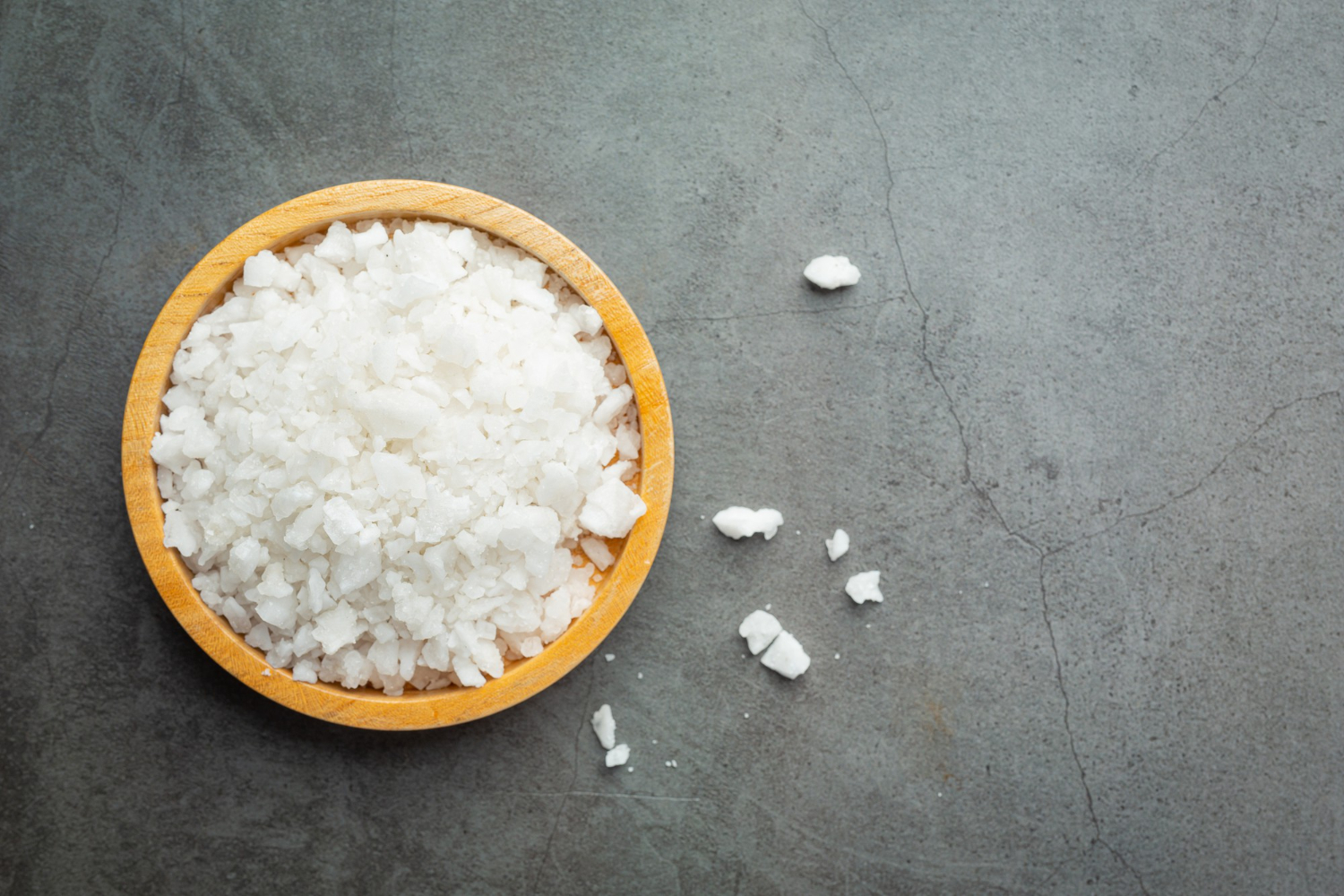
Here’s why it matters:
- Prevents Limescale Buildup – Hard water contains minerals like calcium and magnesium that can form limescale inside the dishwasher. Salt softens the water, preventing this buildup.
- Enhances Cleaning Performance – Hard water can leave spots, streaks, and cloudy residues on dishes. Softened water ensures spotless cleaning.
- Protects Your Dishwasher – Mineral deposits can clog dishwasher components over time, reducing efficiency and potentially causing damage. Using salt helps extend your machine’s life.
Some people wonder if they can substitute regular table salt for dishwasher salt, but is that a good idea? Find out here!
Final Thoughts: Should You Use Extra Salt with All-in-One Tablets?
Yes, even if you use all-in-one dishwasher tablets, additional dishwasher salt may still be necessary—especially if you live in an area with hard water. The small amount of salt in these tablets is not always enough to fully soften the water.
By checking your water hardness level, adjusting your dishwasher settings, and regularly refilling the salt, you can optimize your dishwasher’s performance, protect your machine, and ensure spotless, streak-free dishes every time.
